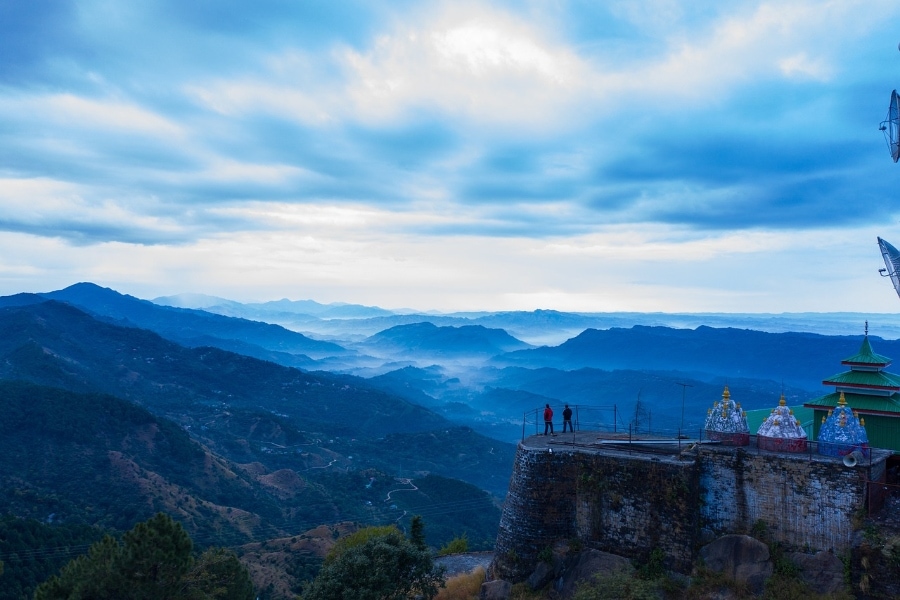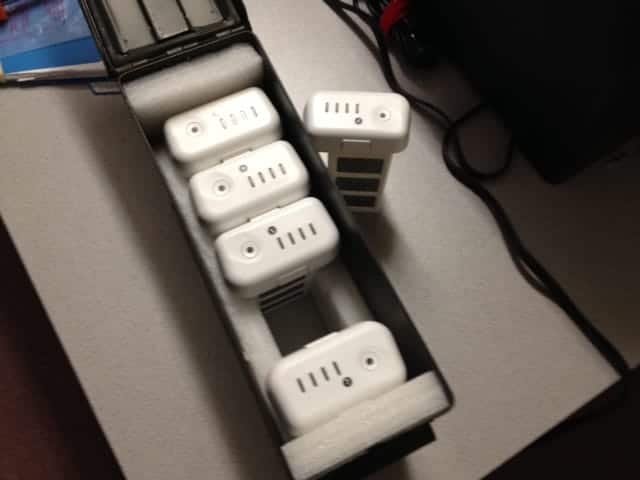Can You Take a Drone on a Plane? The Ultimate Guide to Traveling with a Drone
BY Isabella Lee
1 March 2024Can you bring a drone on a plane?
Yes. But there are a few key things you need to know.
Before you pack that drone in your suitcase, you should consider whether it will comply with TSA requirements, FAA hazardous material regulations, airline policies, and the drone laws in both your take-off location and arrival destination.
Here are the sections we cover in this guide to traveling with a drone:
- Can You Take a Drone on a Plane?
- How to Pack When Traveling with a Drone
- Bringing Your Drone Batteries on a Plane
- Taking Your Drone Through Customs
Can You Take a Drone on a Plane?
You can! Watch this video for an overview of everything you need to know:
Here’s a list of the most important things to keep in mind for bringing a drone on a plane:
- Battery regulations. Lithium batteries must be carried in carry-on luggage, with limits on watt-hours (Wh).
- Drone size. Check if the drone fits within airline carry-on dimensions.
- Airline policies. Each airline may have specific rules for traveling with drones.
- Destination laws. Research drone regulations at your destination.
- Protective case. Use a hard case to protect the drone and its accessories.
- Labeling. Label the drone and batteries with contact information.
- Security screening. Be prepared for additional screening by security.


A drone photo taken in India | Image source
How to Pack When Traveling with a Drone
Bringing a drone on your travels can be a great way to document your experiences and record memories.
Most people who own a drone wouldn’t dream of traveling without it, but not every airline or travel destination is drone-friendly.
Follow these steps for packing a drone:
- Check with your specific airline about whether to pack your drone in your carry-on baggage or checked baggage.
- Make sure the drone is turned off and any switches are protected from accidental activation.
- Consider getting a special drone carrying case, like one of these, to protect your drone from damage.
- Remove propellers and store them safely.
- Place batteries in fireproof bags and keep them in your carry-on.
- Use lens caps to protect the camera.
- Secure loose items to prevent movement.
- Label your drone case with contact information.


Source: US DHS, Flickr
Bringing Your Drone Batteries on a Plane
Since most drones are powered by lithium-ion (LIPO) batteries, you need to follow FAA hazardous materials regulations.
LIPO batteries should be stored in your carry-on baggage. In certain circumstances, you may be permitted to pack them in your checked baggage.
However, we find that the rules around traveling with lithium-ion batteries are clearer and easier to follow for carry-on baggage.
- LIPO Batteries in Carry-On Baggage
- LIPO Batteries in Checked Baggage
- How to Determine the Watt Hours of Your Drone Batteries
LIPO Batteries in Carry-On Baggage
When packing LIPO batteries in your carry-on baggage, you’ll need to know the watt hours (Wh) of your battery. (Here’s how to calculate watt hours.)


When packing LIPO batteries with 100 Wh or less in your carry-on baggage, follow these procedures:
- To protect LIPO batteries in your carry-on baggage from short circuit, you must pack them using any of the following methods: leave the batteries in their retail packaging, cover the battery terminals with tape, use a battery case, use a battery sleeve in a camera bag, or put them snugly in a plastic bag or protective pouch.
- The batteries you bring must be for personal use (includes professional use). Do not pack batteries for resale or for distribution by a vendor.
- Check for any airline-specific requirements for bringing LIPO batteries onboard in your carry-on bag.
When packing LIPO batteries with more than 100 Wh but less than 160 Wh in your carry-on baggage, follow these procedures:
- To bring a larger LIPO battery (more than 100 Wh) onboard in your carry-on baggage, you’ll need to obtain approval from the airline.
- Do not pack more than two spare batteries with more than 100 Wh.
- Store batteries in their original packaging, a battery case, or a separate pouch or pocket to protect them from a short circuit.
LIPO Batteries in Checked Baggage
LIPO batteries with 100 Wh or less can be packed inside checked baggage only if they’re securely installed inside the drone. LIPO batteries with more than 100 Wh packed in checked baggage require approval from the airline.
You cannot pack spare LIPO batteries of any Wh in your checked baggage. Only the battery inside your drone is allowed in checked baggage. Pack spare batteries in your carry-on instead, and make sure they are inside their original packaging, a battery case, or a separate pouch or pocket.
How to Determine the Watt Hours of Your Drone Batteries
Most small consumer drone batteries have less than 100 Wh, but it’s important to verify the Wh of your specific batteries.
To determine watt hours, multiply the volts by the ampere hours (Wh = V x Ah).
- Example: A 12-volt battery rated to 8 Amp hours is rated at 96 watt hours (12 x 8 = 96).
Want more information on calculating Watt hours? Here are some resources to help:
Taking Your Drone Through Customs
In most places, the country’s national or civil aviation authority sets and enforces drone regulations.
For example, in the United States, drone regulations are set by the Federal Aviation Authority (FAA). In Canada, they’re set by Transport Canada Civil Aviation (TCCA).
Identifying the civil aviation authority in the country you’re traveling to can help you learn about the drone laws in a specific country.
Traveling to Countries Where It’s Legal to Fly a Drone
Here are things you should do for traveling to countries where it’s legal to fly a drone:
- Research the country’s drone laws. We suggest using our Master List of Drone Laws as a starting point for your research.
- Check for any foreigner-specific drone laws. Some countries require foreigners to obtain special permissions to fly a drone that their citizens are not subject to. In some rare cases, countries ban foreigners from bringing drones through customs at all.
- Check registration requirements. Determine whether or not you’re required to register your drone with the country’s national or civil aviation authority.
- Check licensing and certification requirements. Follow the county’s requirements for drone licensing and certification. You may need to take an aeronautical knowledge test or demonstrate flight proficiency according to the country’s laws. This is likely if you’re flying for professional/commercial purposes.
Traveling to Countries Where It’s Illegal to Fly a Drone
For these countries we do not recommend bringing your drone, since it’s possible it will be confiscated at customs. It may or may not be returned to you at the end of your trip upon leaving the country on your return flight.
See a full list of countries that ban drone ops here.
Traveling to Countries without Drone Laws
If a country has no established drone laws you should not assume that you’ll be able to bring or fly your drone in that country.
The absence of drone laws doesn’t necessarily mean you can fly wherever or however you like in—in fact, it could mean that authorities will be generally opposed to the use of drones, especially by tourists.
The same cautionary note applies to bringing a drone through customs. Sometimes, when a country has no drone-specific laws, some customs officials choose to confiscate drones and some choose not to—but it’s almost impossible to know what you’ll run into until you’re actually there with your drone.
A Note for U.S. Travelers
As an additional precaution for U.S. travelers, you may have the option to register your drone with Customs as a “Personal Effect Taken Abroad” prior to traveling. This will prevent any misunderstandings as to whether you are returning with the same drone you left with or are importing a new drone purchased abroad.
Traveling with a drone can provide exciting filming and photography opportunities. With a bit of planning and research, a drone can be an excellent travel companion, and you won’t have to worry about stirring up any legal issues or having your drone confiscated.
Note: The content on this page is meant for informational purposes only and is not meant to take the place of legal counsel. If we missed something, or if you have further questions, please send an email to support[at]horizonap[dot]com, and we’ll do our best to help you out.


